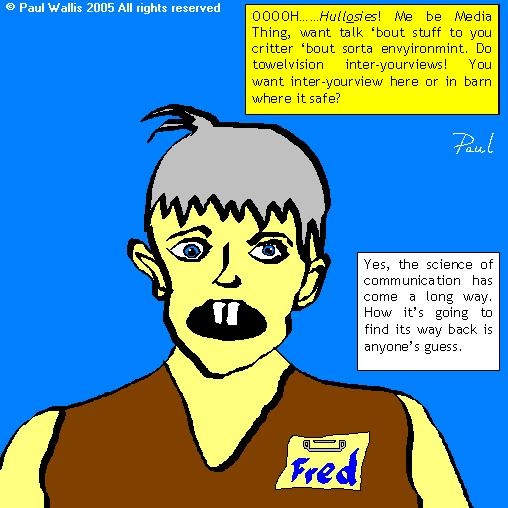
Written for Sydney Media Services.com a few years ago. The pity of it is that it all still holds true. Non-writers are as much of a curse to writers as non-artists and non-musicians are to those arts. They know staggeringly little about the actual facts of writing, the need for continuity and are usually 20 years behind the market.
To explain:
- Nobody can be forced to read, let alone made to want to read, anything at all, online or anywhere else.
- “Engagement” is the key to any kind of content. Modern writing isn’t based on style guides, auditing practices, focus groups or anything but interesting content.
- The modern audience actively searches for information. It is therefore fussy about what it reads. Ignore that fact at your peril. Fizzy, featherweight copy can be a major non-lead generator.
- The commercial audience isn’t clueless when it’s looking to buy products. Many customers are as knowledgeable as, or more knowledgeable than, the sales people they deal with.
- Customers can take or leave sales spiel. In practice, they’ll ignore 90% of what they see, and be fussy about the other 10%. They need hard values in sales form, not sales form disguised, badly, as information.
- The “I should know everything I need to know in 30 seconds” thing is now at least 20 years out of date. Less can be better, but more provides, well, more. Lack of information, not too surprisingly, looks like lack of information. Worse, it looks suspicious, like obvious questions are being left unaddressed.
- Grammar, schmammar. Making sense is more important than archaic usage. Bad grammar may be inexcusable in some cases, but it’s not like lawsuits will result unless you louse up your sales terms. Grammar is not written under oath, and unless the usage and syntax are actually suicidal, it’s not worth nitpicking.
- Pomposity is not an asset in business writing or copywriting. You can be as “corporate” as you like, and the readers will simply edit it out. It’s useless to them. They need applicable, relevant information, far more than mere presentation. Friendly/casual works far better than “we’d like to patronize you to death, right now this minute,” as copy.

- You can’t pass off “useless” as a synonym for “professional”, either. Filler is filler, however overloaded with standard phrases. (It also uses up space which could be made much more productive.)
- Garbage is garbage. “This exciting, innovative, money-making product” doesn’t mean a damn thing until you get down to cases. A lot of long form direct marketing stuff is guilty of this, and it’s a major turnoff for anyone who’s survived puberty.
- Portfolios matter to writers. If your portfolio is full of crap, prospective clients will think you’re full of crap, and you’ll be able to prove it to them with substandard materials.
- Non-writers have their own problems. They need to work with clients, sometimes at kindergarten level, but failing to understand what better quality writing can do simply devalues their product. Most competent writers can contribute both subject knowledge and value-based writing options. That usually doesn’t happen. (Just look at what’s trying to pass itself off as copywriting online for infinite numbers of examples.)
- Writers, like marketers and advertisers, target audiences. They write to actual people in context with subject matter. Non-writers may or may not know the markets or the people. In some cases, they don’t know the products too well, either, where most experienced writers make a point of understanding specific markets. If you’re writing B2B, you have to write to business values, not some damn obsolete image. C level readers don’t need pretty pictures. They want dollar values to their businesses.
- Depth of information matters to readers. “Whiter and brighter” isn’t the criteria for buying anything any more. Superior product, better value, clear user/buyer information, and anything along those lines, goes a lot further. (Remember customers do check out competitors. So should agencies. You can learn a lot.)
- “We’re not experts”. This cliché, invented in the 90s, has a lot to answer for. Says who? Is the assumption that because you’re a writer/agency, you know nothing about your client’s products? Does it sound plausible?
- “Writing like a lawyer”. I’ve been accused of this, and it was in relation to stock market-based materials in Canada. What I was worried about was market disclosure, providing information which may or may not be accurate. Not writing dubious/debatable materials which can be used to discredit a corporate client seemed to me to be a good idea, and still does. Caution is advisable when your client’s image is at stake.
- Conformity is death. Writing like everyone else is a great way of being totally ignored. Unique writing is as important as any unique selling point, when you’re trying to get a message across.
The bottom line: If you want relevant, reader-friendly material, acknowledge the role of the writer and allow appropriate input.
Good copy can’t write itself.
